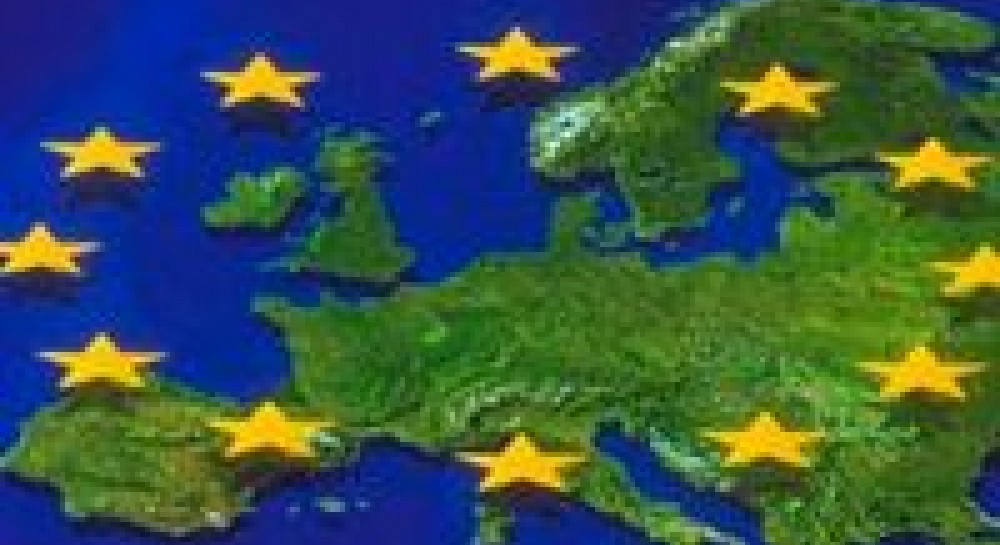
EU tensions amid financial crisis
The British press has been noting with satisfaction that Prime Minister Gordon Brown is the first European leader to be invited to see US President Barack Obama...
However, to the question often asked in Europe when a new administration takes office - "Who`s first?"- the answer in Washington is often "Who cares?"
The fact is that in the current global financial crisis, it is substance not style that matters.
It is not who is first but who is strongest.
And when it comes to substance, Britain counts for a good deal less than some other players - notably the EU as a whole, in which Germany above all has the key role, and China.
It is quite natural that Mr Brown should go to Washington first. Britain is chairing a summit of G20 countries in London on 2 April, so transatlantic positions have to be discussed in advance.
Beyond that, Britain is providing by far the largest number of troops after the US in Afghanistan - and President Obama has made the pacification of Afghanistan a key foreign policy objective.
It would be pointless from his point of view to offer a petty snub to Britain over who gets the first invitation.
Role of EU
The more important issue for the Americans and the rest of the world is the position of the European Union in the face of the global crisis.
And here we find a very mixed picture, with EU leaders only just beginning to get their act together after a tense few months of rivalry, confused analyses and conflicting policies.
"Europe, like everyone, was taken by surprise at the speed of the collapse and lots of mistakes were made," says Peter Ludlow, a veteran Brussels observer who is chairman of the European Strategy Forum, a group of experts brought together in response to the financial meltdown.
"Germany, the most important member state, was hesitant and cautious about spending being the way out, but the real trouble was caused by Britain`s unilateralism and the disastrous handling of the end of 2008 by President Sarkozy and Commission President Barroso.
"Sarkozy got too big for his boots. He taunted, baited and ridiculed Chancellor Merkel and went off to London to see Gordon Brown, whom the Germans despised as the architect of a disaster from which he was now claiming to save the world. Merkel was not invited."
"Brown responded to the crisis with a reckless commitment to expenditure and an effective devaluation which is a beggar-your-neighbour policy," Mr Ludlow says, referring to the 15% fall of the pound against the euro since October.
"There was no basis for a coherent EU position," he adds.
New picture
Only now is a new picture emerging, Mr Ludlow notes.
"The Germans have concluded that a stimulus is required, and the old Franco-German axis came into play at the Berlin summit last weekend at which tighter regulation of the financial markets was agreed.
"This will not help the City of London and tensions remain. London is on the edge of the picture and the EU position for G20 is very much a continental one. The lesson is that Germany must be fully involved.
"Britain and France do not have that kind of power these days. The EU also cannot rely on the transatlantic dialogue alone. It has to talk directly to China and Japan.
"This will all leave the world a different place."
It is not only Brussels insiders who are urging the EU to get its act together.
German relations
The Times of London said in an editorial: "Europe is beset by bickering now, when it most needs strong, co-ordinated leadership... EU leaders, and especially Britain, need to strengthen ties with Germany."
The British government does not accept that it was wrong to go for a stimulus early on, arguing that others have come round and that, far from being isolated within the EU, Mr Brown is providing an example.
Mr Brown himself chose to stress another result from the Berlin meeting and one that will feature at the London summit - EU support for an enlarged $500bn (£345bn; 390bn euros) IMF fund to help struggling countries through recession.
After the Berlin talks, Czech Prime Minister Mirek Topolanek indicated to an AFP reporter on his plane home that disagreements within the EU remain.
"If I put it very tenderly, the divergence in opinions was rather big," he is quoted as saying.
"It was obvious that the four countries representing the EU in the G20 [Britain, France, Germany and Italy] do not have the same opinion on a number of issues."

